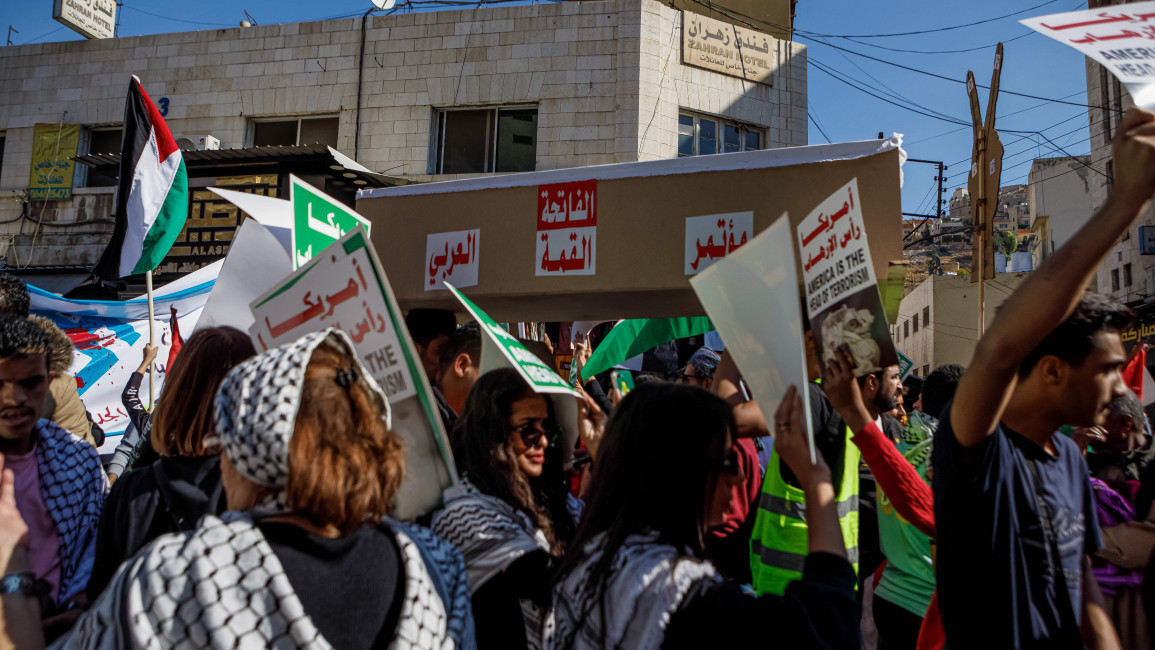International strike for Gaza revives hope for end to Israeli onslaught
Palestinians who have spoken of increasing despondency amid Israel's relentless assault on Gaza say Monday's international strike for the territory have revived their hopes for peace.
Palestinian activists called for an international strike for Gaza to take place on Monday, to urge for an immediate ceasefire for the besieged and bombed Palestinian territory, where more than 18,000 people have been killed and 50,000 injured since 7 October.
The call came after a draft UN resolution for an immediate ceasefire was voted down by the US, while the UK abstained.
The strike saw the streets of the occupied West Bank and East Jerusalem emptied as businesses shut up shop and public institutions were closed.
Such strikes often take place in the Palestinian territories, in protest against Israeli occupation and military aggression - but the strike for Gaza crossed international boundaries and was had an almost unprecedented level of participation.
"Monday's strike was the strongest I had seen in years," The New Arab's Jerusalem correspondent Ibrahim Husseini said.
"People in the West Bank, including East Jerusalem, committed to the call and closed their shops and businesses or didn't go to work.
"I heard someone say that this global action could be the start of something bigger. Others said it was the least they could do."
The strike also took hold in Jordan, with video showing the streets of Amman deserted as shops were shuttered. Several labour unions in Jordan also took part in the strike, according to local media.
"I think it’s a testament for people’s power and their ability to organise themselves," Samar Saeed, a Jordanian PhD candidate Georgetown University told The New Arab of the strike in Jordan.
"The strike was successful in Jordan even though no political parties or associations were involved in planning for it... While this most likely won’t yield political results, given that Jordan doesn’t have the power to enforce a ceasefire, I think for Jordanians it was important," Saeed said.
"It will also count as a learning moment for Jordanians with many lessons that could be used as a political tool to pressure the government in the future if needed.
"Even though governments across the world have tried to stifle dissent and limit action and speech, I think the strikes and other forms of protest are a clear indication that governments can never really suppress people advocating for righteous causes like the Palestinian cause. People will always find a way to act."
Strike action was more limited in Lebanon, but there were protests at Palestinian refugee camps, including Burj al-Barajneh in Beirut and Nahr al-Bared in the north of the country.
At midday, ships in the Beirut harbour blew their horns for 7 minutes in solidarity with Gaza.
Journalists in Gaza, who have spoken of increasing despondency as Israel's war persists, said the action had instilled hope of change in them.
"To all friends around the world, you are already making a difference by the strike! You are our voice!," read an Instagram post from Gaza-based journalist Bisan.



